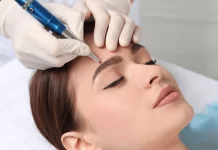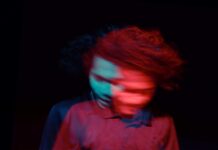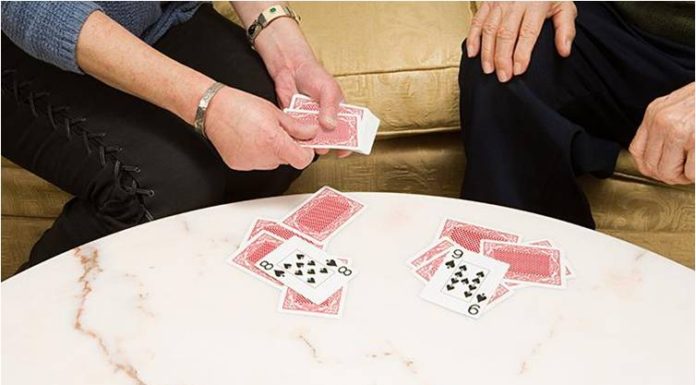As a 17-year old Indian teenager from Delhi, I was accustomed to embracing any mentions of the British Royal Family with apathy and continued disinterest. Of course, as a monarchy that has reigned since 1707, from the eras of Edward the Confessor and William The Conqueror – The British Royal Family holds a place in history paralleled by few others. But, neither as an anglophile or a particularly ardent student of history – my ignorance towards them was unfailing and deep-seated
That was, until I watched ‘The Crown.’
I came across the series unknowingly, while scrolling aimlessly on my Netflix recommendations. Bored, and having recently adopted a ‘come what may’ philosophy due to exhaustion from school work – I decided to watch the show. And, I was hooked from the first episode.
‘The Crown’ is an award-winning historical drama series that encapsulates the reign of the longest reigning monarch in British history, Queen Elizabeth the II. From her life as Princess during the reign of her father, George VI, and her subsequent succession of the throne following his death in the early 1950s – to the Charlies-Diana conflict in the late 20th century and Prince William’s life at university in the early 2000’s. Created by Peter Morgan, the series masterfully blends ‘black-and-white’ historical events with poignant human drama that go above and beyond the Royal Family itself, resulting in a rich, period drama that transcends the limitations of its genre.
One aspect that sets ‘The Crown’ apart from others in its’ genre was the fact that the showrunners did not try and make it a show purely made for glamor and glossiness – instead, preferring to stay as accurate as possible, as evidenced by Adriano Goldman, the show’s cinematographer. This can be seen in the fact that the entire cast changed every 2 seasons to keep up with the Royals’ real ages; from Claire Foy playing the Queen in season 1, to Olivia Colman in season 3 and Imelda Staunton in season 5.
The first 2 seasons of ‘The Crown, I would say, are particularly interesting and by popular opinion, the best 2 seasons of the show. This is because we get a glimpse into a segment of history that we never have before – young Elizabeth on the throne – insecure and struggling to cope – which brings a scarce relatability and humane quality to the Royal Family. Foy’s portrayal is understated yet vehement, highlighting the young Queen’s inner conflict in balancing her royal responsibilities with her personal life. Olivia Colman, who took over in Seasons 3 and 4, brought a more mature, composed version of Elizabeth, reflecting her development into a seasoned ruler.
Another character that was particularly interesting was Princess Margaret (Queen’s sister), portrayed by Vanessa Kirby in the earlier seasons. Princess Margaret’s character served as foil to the character of the Queen. She was characterized as a vulnerable and deeply complex character – constrained by her role in the Royal Family, yet not willing to let the fame and recognition that came with her role go; she’s also someone who underwent tragedy, especially due to her tumultuous and failed marriage with Anthony Armstrong-Jones. The nuanced and
intricate characterization her character inspires a relatability within the audience – allowing them to gain a new perspective on similar self-destructive and harmful patterns in their own lives as reflected by Princess Margaret’s character.
Many people have criticized The Crown for taking creative liberties and prioritizing dramatization over the realities of the situation. While, I agree that the show, at times, overlooks important details – it also provides a rare glimpse into the many historical events that shaped Queen Elizabeth’s reign. I, like several others, had no real idea of the Great Smog of London in 1952 – a disaster perpetuated due to the irresponsible coal burning of the British government – or details about The Suez Crisis, the Profumo Affair or the Aberfan Disaster – all of which shook the government and brought Britain to a standstill. I appreciate the gravity, respect and detailed way in which the showrunners approached the storytelling of these events and recall going to Google at the end of basically every episode to do my own research and learn more.
To be completely honest, I was sometimes prone to a ‘black and white’ mode of thinking – regarding the The British Royal Family as a ridiculous, imperialist system that had no place in the modern world, barely giving them more than one thought at once. However, upon watching The Crown – with its compelling cinematography, storytelling and nuance that is otherwise unseen in this modern age of television – my eyes were opened towards my own ignoranceInstead of looking at the British Monarchy as something to ridicule due their obscurity, the cinematography and top-notch acting brought the lives of the people that make up the British Crown to life – they went from privileged public figures, either overwhelmingly loved or overwhelmingly hated to real people with complex personalities and flaws that actually struggled to cope with the pressures of being in a very unique position, being a part of the most prominent royal families in the world.
But, don’t get me wrong: this show is not made for monarchists and I did not come out after watching the 6 seasons of the crown, having gained a positive view of the Royal Family and everything it represents. The Crown allowed me to see beyond the spectacle of royalty, into the struggles of individuals shaped and, at times, crushed by tradition. And though I still view the monarchy as a relic, the series opened my eyes to the people behind the title, inviting empathy without demanding admiration. It inspired in me a sympathy to those who struggled under it, but none at all for the institution.
At the end of ‘Ruritania’ in season 6, the Queen epitomizes this idea adeptly – ‘’The monarchy isn’t meant to be rational, or practical, or relatable. It’s traditional and gives the public something to look up to, a prideful symbiotic relationship.’’
This was a notion repeated throughout the show – about the monarchy being ‘a divine institution’ or even ‘a calling from god.’ In conclusion, through compelling cinematography, meticulous detail and engaging storytelling, ‘The Crown’ juxtaposes the mystique of the Royal Family with the shadowed struggles of it’s members – shedding a newfound light on a decades long institution. I would recommend watching the show indubitably – for its production, acting, cinematography, symbolic visuals and metaphorical framing.
Write and Win: Participate in Creative writing Contest & International Essay Contest and win fabulous prizes.










